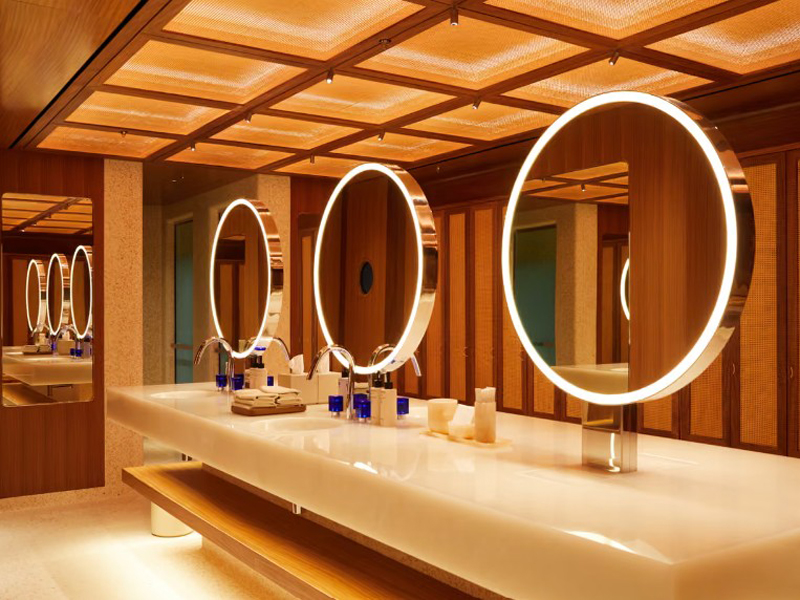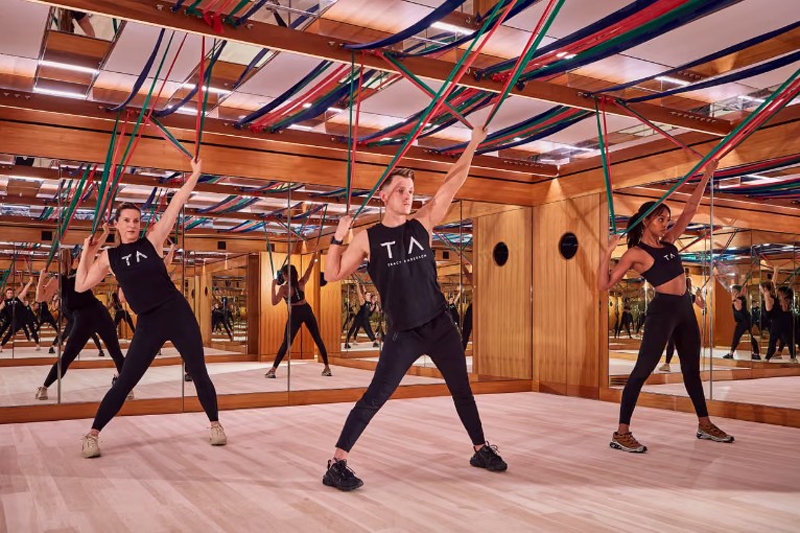Owen Willis's morning shower is the highlight of his day. The scent of lavender and eucalyptus emanates from his £32 Cowshed shower gel. He dries himself with a pristine white towel before applying a matching body lotion.
However, this isn't Willis's home, but his gym. He's a member of Third Space in London, which advertises itself as a "premium health club." Memberships start at £230 a month for one location, rising to £305 for access to all branches, including the Mayfair club, where members can enjoy "UV-treated fresh air" and a "Himalayan salt-walled sauna."
The 23-year-old marketing professional has been committed to the gym since he was 18, considering it his "second home" and spending up to 22 hours a week there. He shares that it's both a significant part of his life and a considerable expense. Each month, Willis pays £279 for his membership, a figure that once represented 10% of his income.
 |
The men’s changing rooms at the Surrenne branch in Belgravia, London, UK. *Guardian* |
Willis is one of many Gen Zers (born between 1997 and 2012) who consider a gym membership an essential monthly expense. A survey by Intuit Credit Karma revealed that 27% of UK adults under 25 view gym memberships as essential spending. Similarly, data from The Gym Group indicates that 18% of 18- to 24-year-olds prioritize spending on fitness over socializing.
Willis says he has noticed a "big shift" among his friends, who are dining out less and frequenting "luxury" gyms instead. These venues, in addition to state-of-the-art equipment and fitness classes, offer saunas, massage guns, and hydrotherapy pools. "It's not just a gym," Willis says. "I go there to relax, to work, and to take yoga classes. They have everything from saunas to sound-bath meditation."
The gym also provides Willis with an escape from his less-than-ideal living situation. He recounts a time when he lived with six other people in a rat-infested house with only two bathrooms. The sight of damp towels and limescale-encrusted showerheads was so "horrific" that he never showered at home. In stark contrast, when Willis arrives at Third Space, the receptionist knows his name and greets him with a soft towel. "If they knew how bad my apartment was back then, they probably would have canceled my membership," he jokes.
Similarly, 26-year-old Niyi Akinseye spends around £250 a month on training at GymBox as a "form of therapy." Exercising and pursuing a specific goal provides him with a sense of accomplishment and control, something he feels his generation lacks. A study published in The Lancet Psychiatry indicated that regular exercise can reduce the number of poor mental health days by 43.2%.
For a generation that grew up with social media and faces unprecedented mental health pressures, this benefit is invaluable. Akinseye says: "Seeing results provides a sense of fulfillment in a world filled with uncertainty. A job isn't as guaranteed as it was for previous generations."
Gen Z's investment in luxury gyms isn't just a financial decision; it's a statement about their values. They're redefining the concepts of "healthy living" and "success." Instead of restaurant dinners or bar nights, they choose to invest in themselves holistically.
As 24-year-old Nishka Parekh explains, fitness "is definitely a social activity." She and her friends often go to pilates together on Friday evenings before heading to the pub. For Akinseye, the gym is also a place where he meets like-minded people and finds potential clients for his personal training business. "The more I pay for the gym, the better opportunities I find," he asserts.
 |
Inside the Tracy Anderson studio at the Surrenne branch of the gym in Belgravia, London, UK. *Guardian* |
This shift in young people's spending habits has created a booming market. Third Space has expanded from one club in 2001 to a planned 13 clubs by 2025. Other gym chains are also becoming increasingly luxurious, with annual membership fees reaching £10,000. These spaces are designed to keep customers engaged for as long as possible, with co-working spaces, cafes, and even wellness services like botox injections.
Willis insists that cutting back on fitness expenses, especially giving up his Third Space membership for a cheaper alternative, is "unthinkable."
"I've never considered switching to a cheaper gym because it definitely wouldn't be the same. I'd probably go once, think 'I don't want to be here,' and never return," he confides.
Binh Minh (*The Guardian*)












